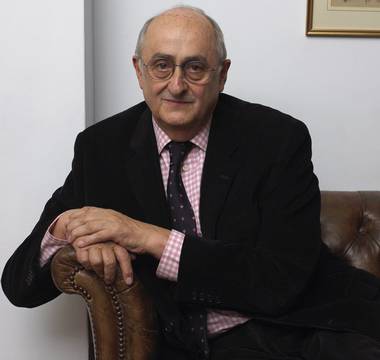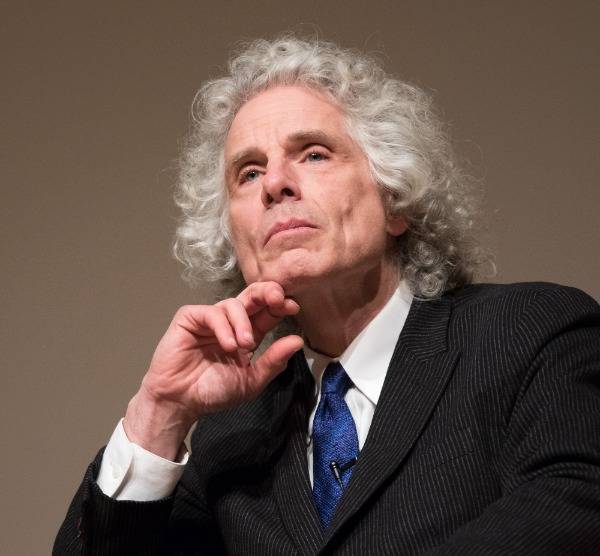 When I first approached Winston Fletcher about the possibility of him joining the Board of the Rationalist Association I concentrated upon the manner in which his distinguished professional career in advertising and marketing would greatly assist the RA's charitable aim of providing information and intelligence about rationalism and humanism to the widest possible audience.
When I first approached Winston Fletcher about the possibility of him joining the Board of the Rationalist Association I concentrated upon the manner in which his distinguished professional career in advertising and marketing would greatly assist the RA's charitable aim of providing information and intelligence about rationalism and humanism to the widest possible audience.
I did not for a moment need to question his commitment to the cause. During our long friendship I'd already become very familiar with his thoroughgoing atheism, his acerbic hostility to anything which smacked of superstition or irrationalism.
But what I didn't tell him as I issued my invitation was that I also wanted him to join the Board because I knew how much his wit and intelligence would illuminate and refresh our discussions of even the most mundane issues. I knew from experience that he had the wonderful knack of being able to undermine any sign of pomposity or pretension with a precisely crafted put-down.
I wasn't disappointed in any of my hopes. As soon as Winston joined the Board he recognised the necessity of developing a marketing plan which would dramatically increase the size and range of the Rationalist Association message. Standing still, he insisted was not an option. We must forget some of our safe comfortable traditions and get out into the market place. His own capacity for change was admirably demonstrated in the eager manner in which he adopted some of the new marketing techniques which had been ushered in by the digital age.
It was also good to see Winston bringing his characteristic no-nonsense style to bear upon the articles he contributed to the New Humanist, whether he was using his methodological knowledge to expose the shortcomings of the census question on religious affiliation or drawing upon his advertising expertise in the splendid essay "God Almighty Plc", which began with this classic Q and A: "What is the oldest successful brand in the world? My own nomination for this coveted crown of thorns is the Catholic Church."
Neither did it take Winston long to enliven our Board meetings. I still find myself laughing when I recall his contribution to an over-extended discussion we were having on increasing the number of Board members. Would twelve be too many? Or how about fourteen? Even fifteen? As the discussion threatened to drag on, Winston said in a stage whisper out of the side of his mouth that in his view it was generally advisable for a membership organisation like the RA to have a Board containing rather fewer people than the organisation's total membership. It brought us all to our senses.
What made Winston so special and what ensures that he will be hugely missed by all who knew him well was not only his intelligence and wit and commitment to rationalism but his absolute refusal to subscribe to fashionable or conventional truths, his steadfast commitment to intellectual honesty even when it risked alienating friends or colleagues.
I remember being with him in a London club one night. Half way through our conversation, Winston left me to say hello to an old advertising chum on the other side of the room. While he was away my neighbour on the banquette asked me the name of my companion. Why did he want to know? 'Well', he explained apologetically, "My partner said he looked a little like the portrait of the wonderfully wicked Mr Punch on the old cover of the magazine and I said he looked more like a picture I'd once seen of Voltaire."
Even though at the time I was struck by how this joint observation captured so much of Winston's character I didn't dare mention it when he returned to the table. I already knew he'd only give me one of his characteristic looks, a look which said, as it did whenever the conversation between us veered towards the personal, that there were far more important things in the world to talk about than himself.
Winston Fletcher was born in London on 15 July 1937. After studying philosophy at Cambridge University, he went on to enjoy a long and successful career in the advertising industry, and later served on the boards of numerous charities, including the Royal Institution, Barnado's, Autistica and the Rationalist Association. He was the author of 14 books, including his history of advertising, Powers of Persuasion (2008), and a novel, The Manipulators (1988), and a columnist for many leading magazines and newspapers. He died in London on 4 September 2012, at the age of 75.

